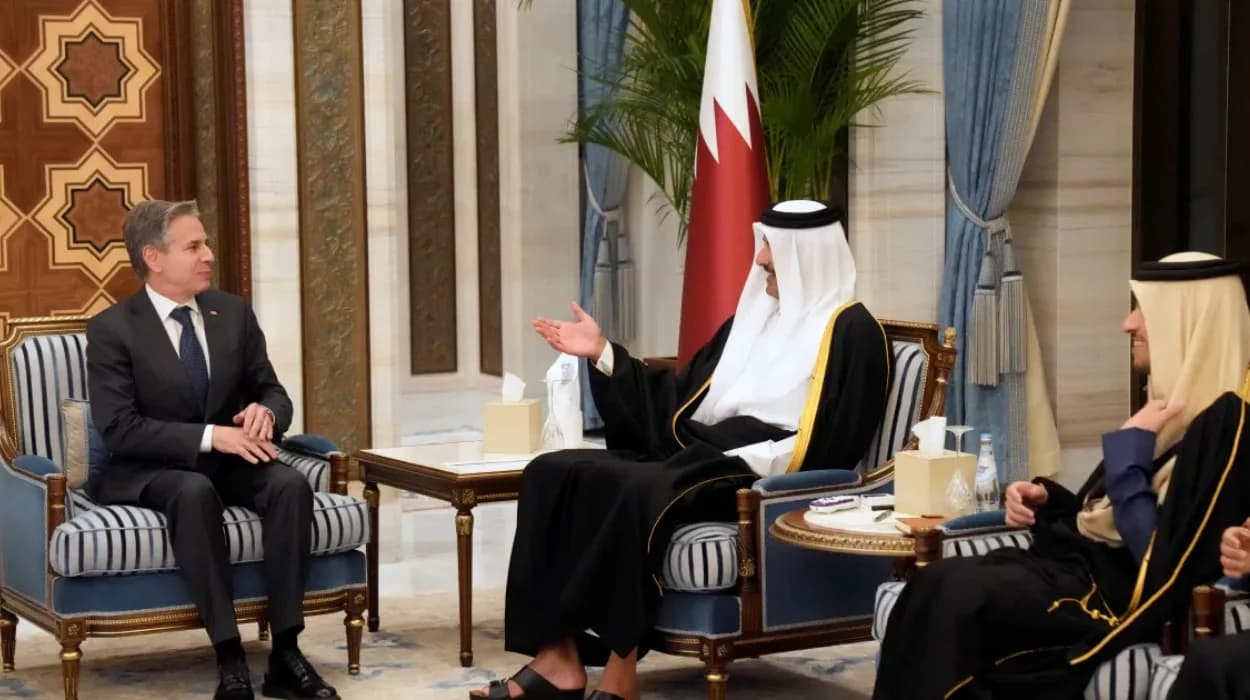Qatar, acting as a mediator, announced that Hamas has
accepted a Gaza ceasefire and hostage release proposal nearly identical to one
previously agreed to by Israel. However, Israel has yet to provide an official
response, with mediators urging swift action to prevent a worsening
humanitarian crisis.
Gaza Truce Proposal and Mediation Efforts
As reported by Majed Al-Ansari, Qatari Foreign Ministry
spokesperson, at a press conference in Doha on 19 August 2025, Hamas gave a
"very positive response" to a ceasefire proposal for Gaza that is
"almost identical" to a version previously agreed to by Israel. He
emphasised that the current proposal represents the best possible option
"to stop the bloodshed of the Palestinian people" amid ongoing
military escalation and worsening humanitarian conditions.
Dr. Majed bin Mohammed Al Ansari, Advisor to the Prime
Minister and Official Spokesperson for the Ministry of Foreign Affairs of
Qatar, confirmed that the proposal includes a temporary ceasefire for 60 days,
provisions for the exchange of prisoners and hostages, Israeli forces
repositioning near Gaza’s border to facilitate humanitarian aid, and
intensification of aid deliveries.
Mediate efforts are led primarily by Qatar and Egypt, with backing from the United States. Egypt’s Foreign Minister Badr Abdelatty stated that "significant progress" has been made on the ceasefire deal and declared
"the ball is now in Israel’s court".
The proposal was
reportedly sent to Israel by Egypt and Qatar, awaiting an official response.
Israel's Position on the Truce Proposal
According to a senior Israeli official speaking on condition of anonymity to AFP, Israel’s government maintains its firm stance on the release of all hostages as a prerequisite for any ceasefire deal. The Israeli government has insisted that the
"release of the hostages supersedes"
all other considerations, including the dismantling of Hamas.
Rubi Chen, father of the Israeli-American soldier Itay Chen,
who was kidnapped on 7 October 2023 and is believed to have been killed that
day, voiced his priority: the release of all captives must come first to ensure
no hostages' fate is further endangered.
Israel’s public broadcaster KAN reported that the new
Egyptian-Qatari proposal closely resembles US envoy Steve Witkoff’s earlier
plan, which called for a 60-day ceasefire and a prisoner-hostage exchange
involving 10 living hostages and 18 bodies.
Humanitarian Crisis and Urgency for a Deal
Qatar’s Majed Al-Ansari characterised the current situation as
"a very defining humanitarian moment."
He warned that failure to
reach an agreement would exacerbate the crisis in Gaza, which is already facing
severe shortages of food, medicine, and essential services due to ongoing
conflict and blockade.
The State of Qatar, along with Egypt, the United States, and
other international actors, continues to exert diplomatic pressure to hasten a
ceasefire deal and facilitate humanitarian aid entry. The spokesperson
highlighted that about 98% of the terms previously approved by Israel are
contained in the current proposal accepted by Hamas, underscoring the
importance of reaching a speedy agreement.
Past Negotiations and Challenges
Indirect negotiations mediated by Qatar and Egypt, backed by
the US, have been ongoing throughout the conflict, leading to two short truces
that allowed for limited hostage releases in exchange for Palestinian
prisoners. Despite these efforts, a lasting ceasefire has not been brokered.
The situation remains fragile as Israel has killed more than
62,000 Palestinians in Gaza since October 2023, and the enclave is verging on
famine. The International Criminal Court issued arrest warrants for Israeli Prime Minister Benjamin Netanyahu and former Defense Minister Yoav Gallant for
war crimes and crimes against humanity in Gaza last November.
International Coordination and Diplomatic Contacts
According to Dr. Ansari, there is continuous daily contact
between Qatar and the US administration to advance negotiations. The Qatari
Prime Minister Sheikh Mohammed bin Abdulrahman bin Jassim Al-Thani is engaged
directly with the American envoy, showing high-level coordination.
The Qatari spokesperson also noted ongoing coordination
among Arab and Islamic countries to unify positions against Israeli escalation.
Foreign ministers from 31 Arab and Islamic nations recently condemned Israeli
Prime Minister Netanyahu’s statements about territorial ambitions beyond Gaza,
which are seen as violations of international law.
The mediator Qatar has confirmed Hamas’s acceptance of a
detailed truce proposal reflecting most of Israel’s earlier agreed terms, yet
awaits Israel’s official response. Israel remains firm on the release of all
hostages as a precondition. The mediation process involves Qatar, Egypt, and
the US, striving urgently to prevent the further deterioration of humanitarian
conditions in Gaza, where conflict continues to inflict heavy civilian costs.
The diplomatic breakthrough hinges on Israeli agreement to the framework. The
international community watches closely as a humanitarian catastrophe looms
without swift resolution.
